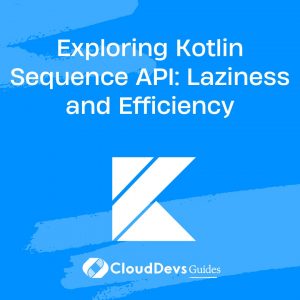The Kotlin Advantage: Elevate Your Startup Game with GCP
In the ever-evolving landscape of technology, staying ahead of the curve is crucial for early-stage startup founders, VC investors, and tech leaders. One way to achieve this is by harnessing the power of Kotlin and Google Cloud Platform (GCP) to build scalable and innovative applications. In this post, we’ll explore why Kotlin and GCP make a winning combination and provide real-world examples of their effectiveness.
Table of Contents
1. Why Kotlin?
Kotlin has gained immense popularity in recent years, and for good reason. It’s a statically-typed, concise, and expressive programming language that seamlessly interoperates with Java, making it an ideal choice for Android app development. However, its versatility extends beyond mobile apps. Kotlin can be used for building backend services, web applications, and cloud-based solutions, making it a versatile choice for startups looking to scale their operations.
2. Why Google Cloud Platform (GCP)?
Google Cloud Platform offers a comprehensive suite of cloud services that can empower startups to build and deploy scalable applications with ease. From infrastructure as a service (IaaS) to platform as a service (PaaS) and serverless computing, GCP provides the building blocks necessary to create robust and scalable software solutions. With its global network infrastructure and cutting-edge technologies like Kubernetes and BigQuery, GCP is the go-to choice for startups aiming for rapid growth.
3. Real-World Examples
Now, let’s dive into some real-world examples of startups that have successfully leveraged Kotlin and GCP to build scalable apps:
- Duolingo: Duolingo, the language-learning app, utilizes Kotlin for its Android application development. With millions of users worldwide, Duolingo relies on Google Cloud Platform to handle the scalability of its language courses and user data. GCP’s Cloud Firestore and Cloud Functions ensure seamless user experiences and efficient data management.
Link to Duolingo’s Tech Stack – https://stackshare.io/duolingo/duolingo
- Pinterest: Pinterest, a visual discovery platform, adopted Kotlin to improve the development process for its Android app. By integrating Google Cloud Platform’s machine learning tools, Pinterest can recommend personalized content to its users more effectively. This integration significantly enhances user engagement and retention.
Link to Pinterest Engineering Blog – https://medium.com/@Pinterest_Engineering/kotlin-on-android-at-pinterest-a1362d758c9
- DoorDash: DoorDash, a food delivery platform, uses Kotlin for building its Android app, allowing users to order food conveniently. Google Cloud Platform’s Kubernetes Engine plays a pivotal role in ensuring the scalability and reliability of DoorDash’s delivery services, especially during peak hours.
Link to DoorDash Engineering Blog – https://doordash.engineering/
In each of these examples, Kotlin’s simplicity and versatility, combined with Google Cloud Platform’s powerful infrastructure and services, have enabled these startups to deliver exceptional user experiences and scale their operations effectively.
Conclusion
For early-stage startup founders, VC investors, and tech leaders, Kotlin and Google Cloud Platform offer a winning combination for building scalable and innovative applications. As demonstrated by the success stories of Duolingo, Pinterest, and DoorDash, embracing these technologies can lead to exponential growth and a competitive edge in today’s tech-driven landscape.
Incorporate Kotlin into your development stack, harness the capabilities of Google Cloud Platform, and watch your startup outperform the competition while captivating top-tier talent through your brand and culture.
Table of Contents









